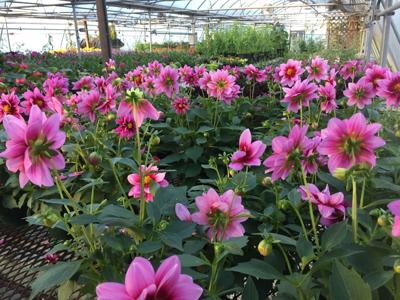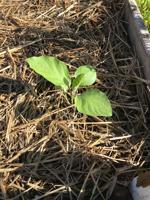Classes at Trident Technical College are free this fall to most South Carolina residents. And that includes horticulture classes.
The Trident Technical College horticulture program offers day and night classes. Over 80 percent of current horticulture students are employed while taking classes. Most of them are non-traditional, meaning they did not just graduate high school. Many of them have a family to care for. Many of them haven’t ever been to college. If this describes you, you’ll fit right in.
To meet the non-traditional needs of working students, the horticulture program offers many hybrid classes, where students meet once a week for each class lab. Lecture content in a hybrid class is online and can be completed whenever the student’s schedule allows.
Most students pursue an associate degree, but there are several certificates that only require six classes to complete. Certificates include landscape design, edible landscaping, sustainable agriculture and more.
If you aren’t interested in a degree or certificate, you can take one class or five classes to learn how to garden, manage a lawn or identify plants. There’s plenty to choose from.
Plant identification
Carpenters need tools to do their work. Horticulturists need to know their plants. This class identifies over 100 trees, shrubs, ground covers and vines. After this class, trees and shrubs cease to be generic plants covered in leaves. They become maples, viburnums, beautyberries and mahonias.
Students learn which plants are native or invasive, where they are used in the landscape and their cultural requirements. Botanical and common names are used for weekly identification quizzes.
Warning. Take this class and you just might annoy family and friends by how often you stop to identify plants. You won’t need help at a plant nursery. You’ll be amazed by the peculiarities of new cultivars. You’ll identify shrubs just by the fragrance of a flower. “I believe that’s an Osmanthus fragrans in bloom.”
Agriculture
Tour agriculture in the Lowcountry. Weekly field trips meet at a different farm to talk with owners. These stops include large farms and backyard farms, hydroponics, urban farms and agricultural tourism.
Students learn what it takes to grow crops in the Lowcountry, how to sell them and how to acquire funding to start a business no matter how small or large.
Insects and disease
As soon as someone discovers you’re taking horticulture classes, they’ll ask what’s wrong with their plant. It never fails. I didn’t feel like a horticulturist until I had taken entomology and plant pathology classes.
The plant pests class covers insects and diseases in the Lowcountry. Students identify beneficial insects, as well as the ones that harm our plants. They learn what diseases occur and when.
More importantly, the class covers sustainable control of pests. Most insects are not a problem. Aphids, for instance, feed on plants but rarely harm them. In fact, they will attract beneficial insects into the area that feed on them.
Soils and botany
For science nerds, there are the soils and botany classes. Botany is chock full of fun experiments that study the impact of light intensity, tropisms, allelopathy, osmotic potentials and other technical mechanisms. Students understand the fundamentals to analyze plant growth in the landscape, as well as indoors.
Soils class is perhaps the most important aspect of plant growth. Horticulturists don’t feed a plant to be successful. They feed the soil. Without well-structured, microbially active soil, plants don’t stand a chance. This class digs into the nitty gritty of soil science, looking at soil chemistry, structure, nutrients and other essential aspects. Students learn to manage healthy soil for productive plants.
The horticulture program is located on Thornley campus in North Charleston. To register for classes, email me at tony.bertauski@tridenttech.edu or call 843-574-6278. Apply to the college at www.tridenttech.edu to start your free education this fall. Classes begin Aug. 22.










